As the world watched Russia launch its latest attack against Ukraine in 2022, nonprofits served their communities during the conflict. They offered support, supplies—and hope.
“On the 24th of February, the life of every Ukrainian changed forever,” wrote Sofiia Kostenko, Specialist of Individual Fundraising at Tabletochki Charity Foundation.
Weeks before Russia’s latest invasion of Ukraine, GlobalGiving’s nonprofit partners in the region shared their concerns about the tensions building at the border. If the conflict reignited, they said, their communities would need assistance.
The Ukraine Crisis Relief Fund, launched on Feb. 8, was a response to those concerns. Just days after the 2022 invasion, emergency grants from the fund were already supporting organizations responding to the crisis in their cities and towns.
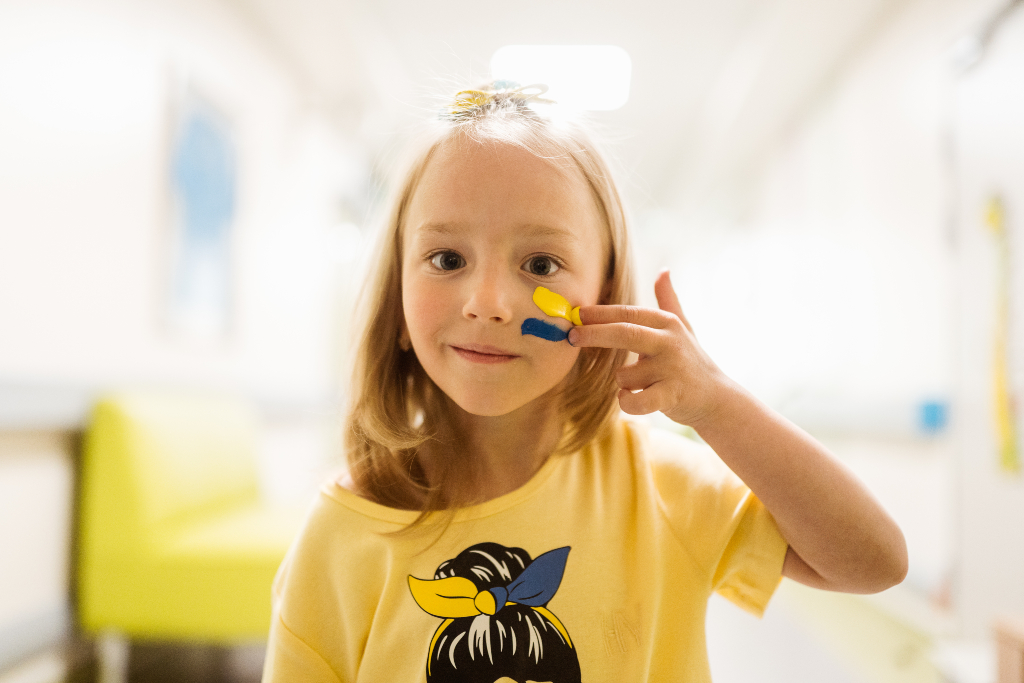
Photo: Tabletochki Charity Foundation
As the conflict continued, everyday Ukrainians fought for their country. Meanwhile, hundreds of Ukrainian children were fighting cancer.
Children like 13-year-old Kyrylo.
He and his mother learned about his cancer diagnosis on Feb. 23. The next day, Kyrylo was undergoing his first chemotherapy treatment as air raid sirens rang. His mother carried him down five floors to the bomb shelter. She did all this while pregnant.

Photo: Tabletochki Charity Foundation
When the shelling began in Sumy, a city in Ukraine’s northeast, Danylo’s family decided to return to their hometown of Konotop farther west. His mother learned to administer chemotherapy herself in the basement of their house to continue Danylo’s treatment.
Mariya spent two weeks with her family in their basement in an occupied village near Mariupol, in the southeast corner of Ukraine. In March, the family braved Russian checkpoints and occupied territories to reach safety in the west.
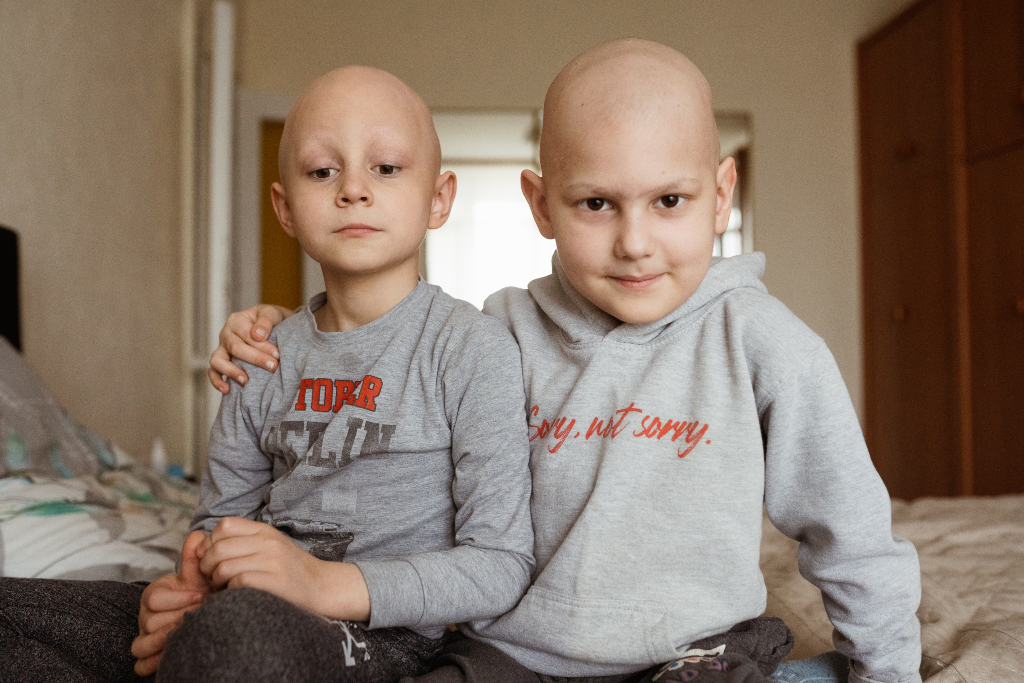
Photo: Tabletochki Charity Foundation
Thanks to generous donors, Tabletochki Charity Foundation supported Kyrylo, Danylo, and Mariya. And they helped hundreds of children continue their treatment in European hospitals, along with their families who were able to leave the country.
Of the more than 7.9 million Ukrainians who have fled Ukraine since the 2022 invasion, at least 650,000 arrived in Moldova. Many of those refugees, whether they were planning to stay temporarily or resettle farther west, came with few belongings or resources.
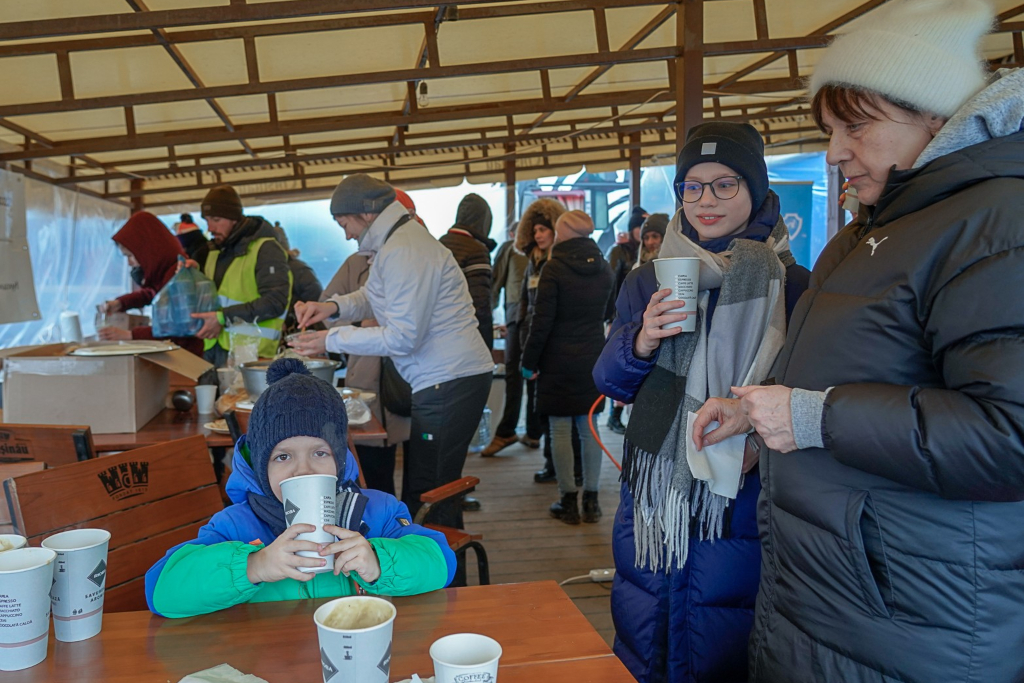
Photo: Katalyst
Katalyst, Moldova’s first food business incubator, saw the tremendous need. They also saw an opportunity to serve the people who were uprooting their lives in search of safety. Katalyst’s focus shifted quickly, and they began delivering meals to the border, supplies to hospitals and refugee centers, and food to train passengers who were transiting through Moldova as they fled to another country.

Photo: Katalyst
Since Katalyst already had a mobile food pantry, they could rapidly scale up their delivery services. Eventually, the organization’s streamlined system allowed them to deliver 20-pound packs of fresh produce to 2,000 families who fled Ukraine and their Moldavian hosts in the city of Chisinau.
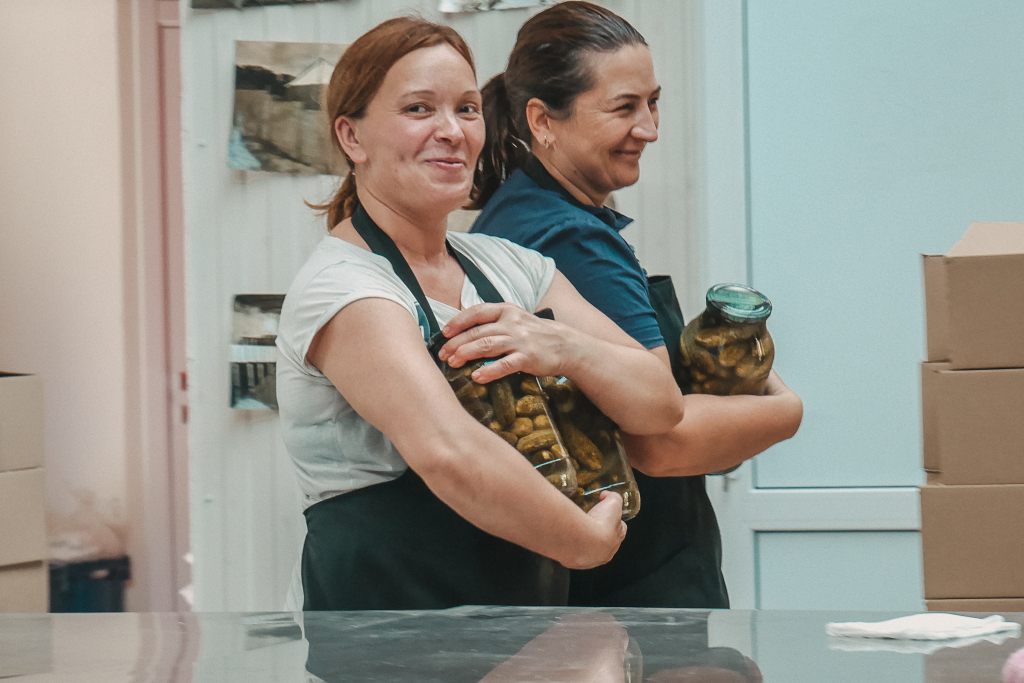 Photo: Katalyst
Photo: Katalyst
By the end of the year, Katalyst had delivered more than a million pounds of food to families across Moldova by partnering with local farmers and distributors. They met the needs of refugees in cities and in areas of the country where refugees took shelter in abandoned houses.
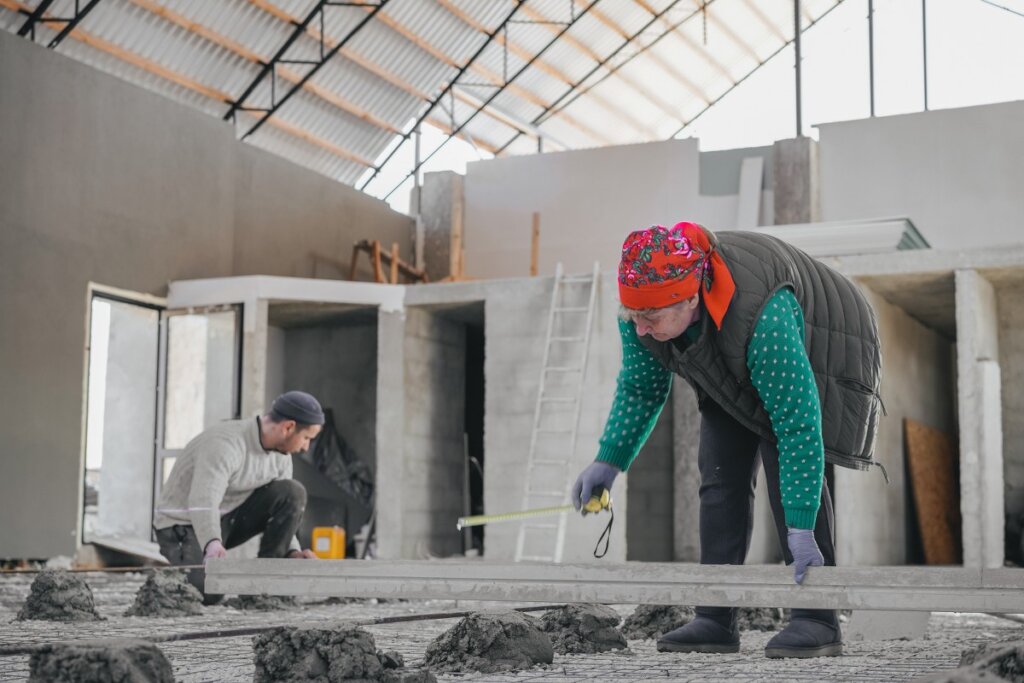
Photo: Katalyst
Katalyst had been renovating their own facilities, but when the crisis escalated, they switched to constructing dorm rooms to welcome refugees. And they started sharing their construction knowledge. The team taught Ukrainians staying with them about working with wood and other materials, open-source design software, and heating, plumbing, and electrical systems—skills they can use to help rebuild their country if they return home.
Within Ukraine, the conflict has displaced more than 5.9 million people. Odessa Charity Foundation Way Home and other organizations sheltered children and families who had escaped occupied cities.
But in those cities, many animals were left behind. As the winter chill set in, stray animals needed food, water, and especially warmth.
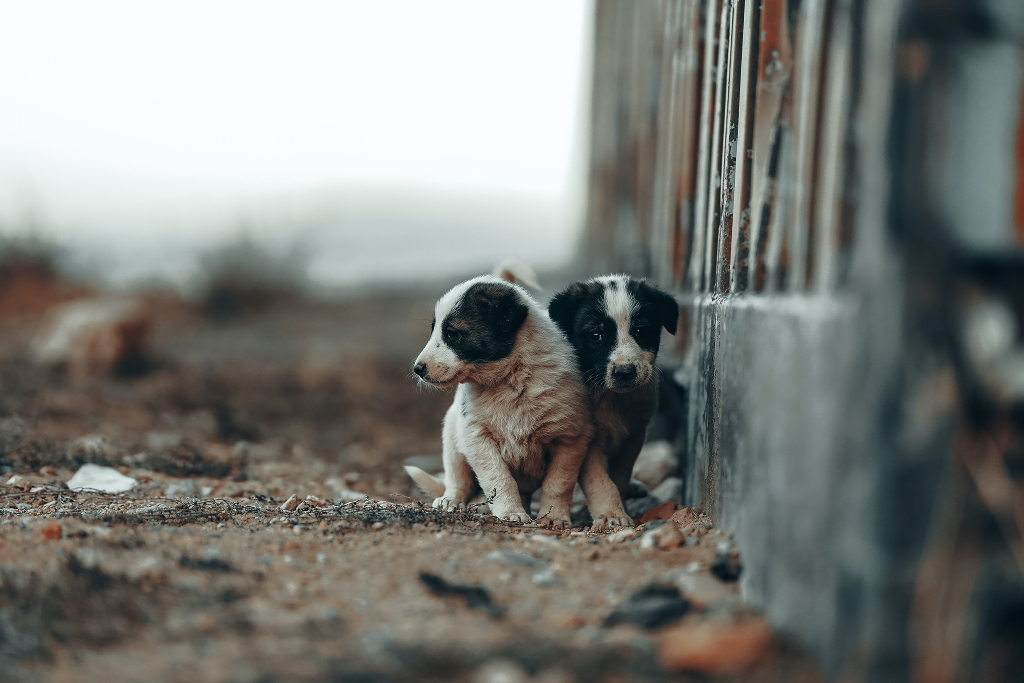
Photo: Happy Paw
Happy Paw rescued dogs and cats from Ukrainian streets amid constant shelling and focused on providing them with food and care. The organization bought firewood, heaters, and stoves for 84 shelters that were caring for thousands of abandoned animals.
But the devastating effects of the war in Ukraine extended beyond the country and the region.
Prices for food, fuel, and fertilizer soared globally. Wheat exports that East African countries depend on were blocked. And that made it even more difficult to access food in Kenya, Ethiopia, and Somalia, where severe drought and insecurity put up to 20 million people at risk of starvation.
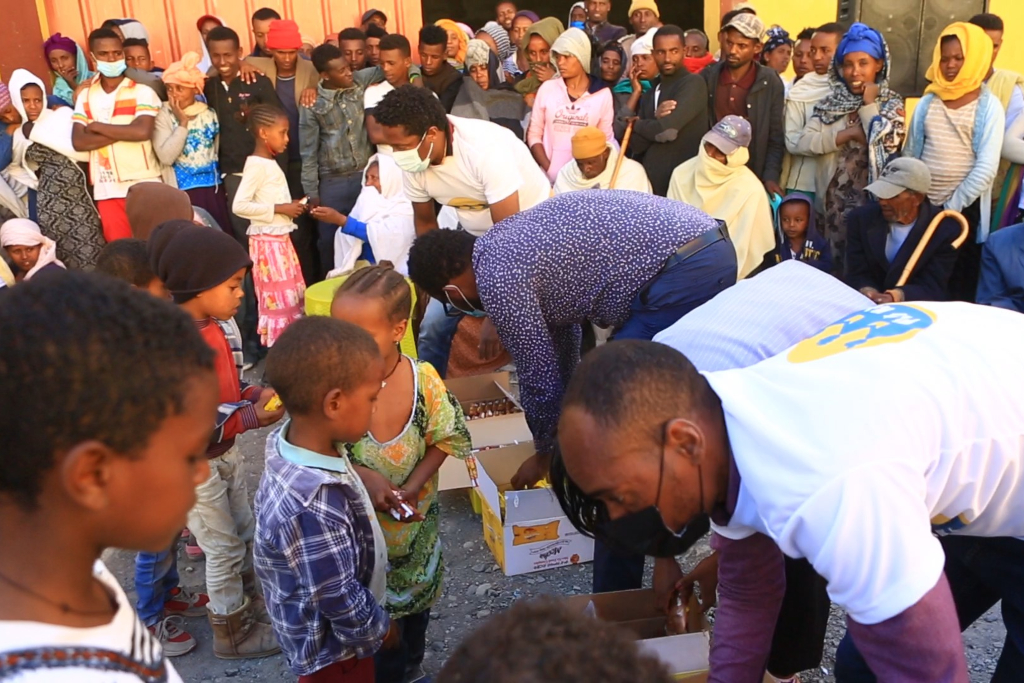
Photo: Meseret Humanitarian Organization
Meseret Humanitarian Organization (MHO) saw the rising food prices hitting communities in Ethiopia’s north the hardest.
MHO searched for a sustainable solution, and they found it in a backyard garden. Behind the organization’s rehabilitation center in northwestern Ethiopia, they started growing maize, carrots, and other vegetables. The garden now provides more than 50 mothers with nutritious food for their families.

Photo: Meseret Humanitarian Organization
By creating more of these gardens on unused school property, MHO is working to create a sustainable food source and cultivate peace in communities affected by conflict and instability.
From Ukraine to Ethiopia, these incredible organizations responded to crises for their communities—and with them. They brought help and hope during a challenging year.
Read more about how community-led nonprofits offered support and solutions in GlobalGiving’s 2022 Year In Review.
Featured Photo: Help to Warm Ukraine Refugees in Upcoming Winter by Peace Winds KoreaFind exactly what you're looking for in our Learn Library by searching for specific words or phrases related to the content you need.